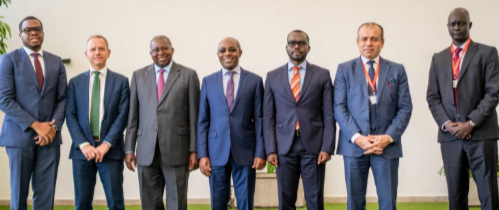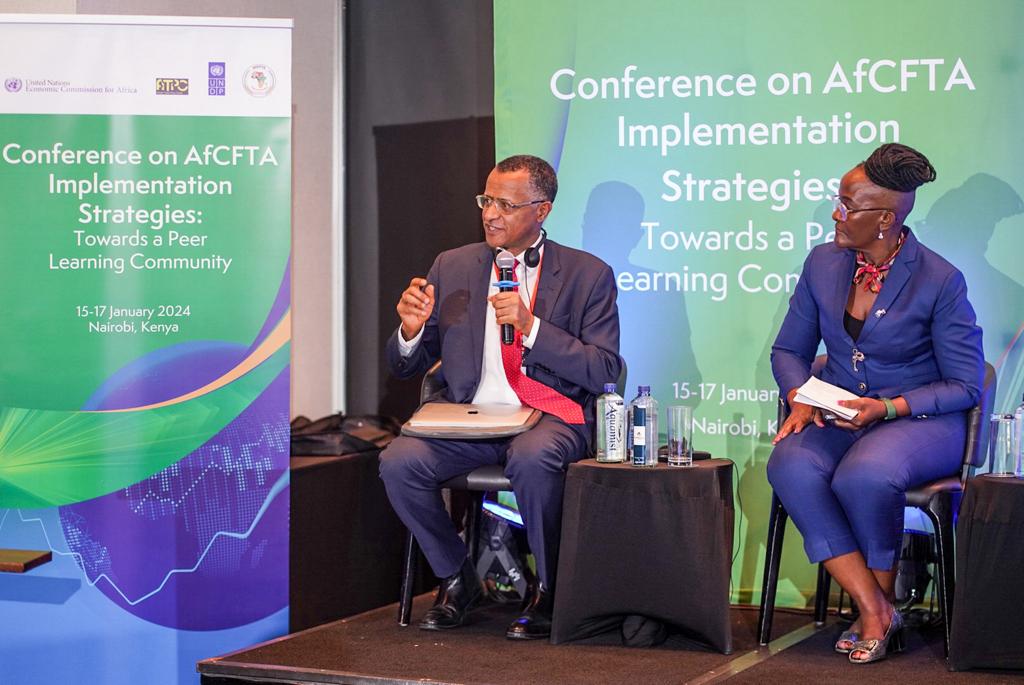First conference for AfCFTA implementation strategies kicks off in Nairobi, Kenya

The United Nations Economic Commission for Africa (ECA), in collaboration with the African Continental Free Trade Area (AfCFTA) Secretariat and the United Nations Development Programme (UNDP), launched the inaugural conference on AfCFTA implementation strategies in Nairobi, Kenya.
Titled “AfCFTA Implementation Strategies: Towards an Implementation Peer Learning Community,” the three-day event commenced on January 15, 2024.
In a statement, the ECA disclosed that the primary goal of the conference is to establish a permanent continental peer-learning platform, facilitating the exchange of experiences among AfCFTA State Parties. The focus is on efforts to operationalise the AfCFTA Agreement through national and regional implementation strategies.
The ECA has played a pivotal role, supporting over 30 countries and two regional economic communities (RECs) in the development and validation of their AfCFTA implementation strategies.

Additionally, the conference highlights the progress of four countries and three RECs in advanced stages of strategy development, with continued support from ECA, while 13 others are in the early stages. The UNDP and GIZ have also supported specific countries in this endeavor.
The ECA said AfCFTA implementation strategies are crucial in translating continental commitments into tangible actions, including national laws, regulations, and administrative processes. These strategies provide practical guidelines and roadmaps to unlock emerging opportunities in the integrated African market.
The conference serves as a platform for sharing experiences, enabling participants to learn from successes and failures. It will concentrate on identifying priority actions for governments, the private sector, and development partners to expedite and ensure full, effective, and inclusive AfCFTA implementation.

During the opening session, Mr. Stephen Karingi, Director of Regional Integration Trade Division at the ECA, emphasised the potential of the AfCFTA to replace fragmented markets with a single market, overcoming colonial legacies.
“The AfCFTA holds the promise for our Continent to overcome the colonial legacy of small and fragmented markets and replace them with a single market,” said Karingi.
UNDP Regional Programme Coordinator, Mr. Jide Martyns Okeke, stressed the importance of a people-centered approach, ensuring policies work for Africa’s business community.
He noted: ‘’We must ask whether policies have worked for Africa’s businesspeople – for investors, for producers, for workers, and for communities. This will ensure that policy efforts and institutions are directed towards making the AfCFTA work for Africans”
The United Nations Resident Coordinator in Kenya, Mr. Stephen Jackson, applauded Kenya’s exemplary role in regional integration, especially focusing on youth involvement.
“Kenya’s National AfCFTA Implementation Strategy has a strong emphasis on youth as a massive opportunity for growth and economic diversification. Kenya’s youth are known for innovative initiatives in business and investment,” said Jackson.
Also speaking at the opening, Ambassador Albert Muchanga, African Union Commissioner for Economic Development, Trade, Tourism, Industry, and Minerals, described the AfCFTA as a “launch pad for deeper continental integration.”
Mr. Prudence Sebahizi, Director of Institutional Matters and Programmes Coordination at the AfCFTA Secretariat, expressed gratitude for the event’s relevance and timing.
He commended the 19 State Parties that have established national AfCFTA implementation committees and pledged the AfCFTA Secretariat’s commitment to intensifying work in this area.
The conference includes interactive sessions, panel discussions, and breakout sessions for horizontal peer learning among State Parties.
It aims to conclude with a list of potentially high-impact strategic areas requiring immediate attention from national governments, the private sector, civil society, and development partners.
The commitment to institutionalise this conference into the work programme of the newly proposed AfCFTA Committee of National Focal Points signals a step forward in enhancing continental collaboration for the AfCFTA’s success.







